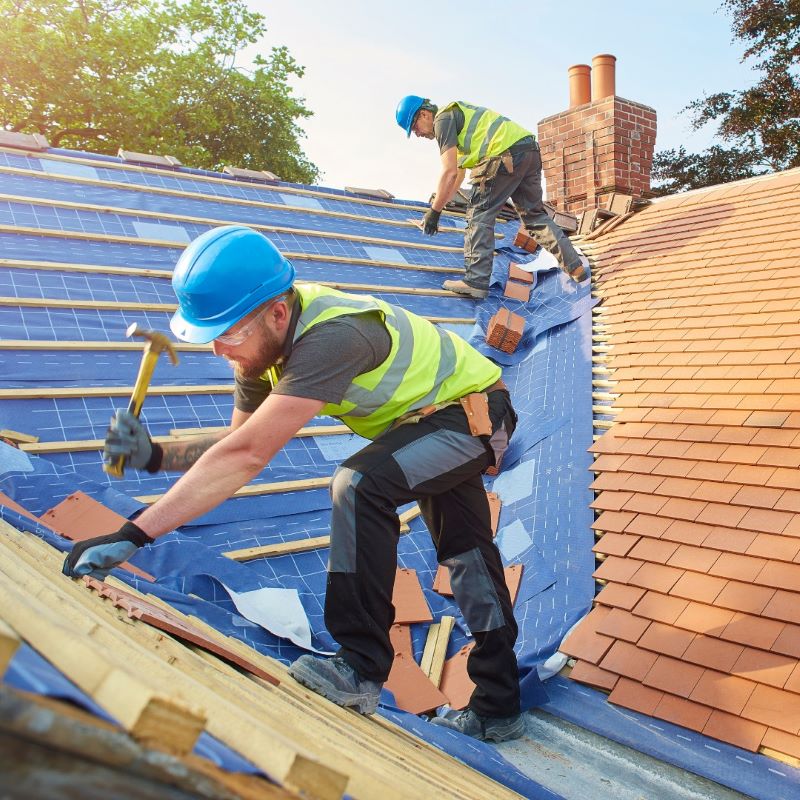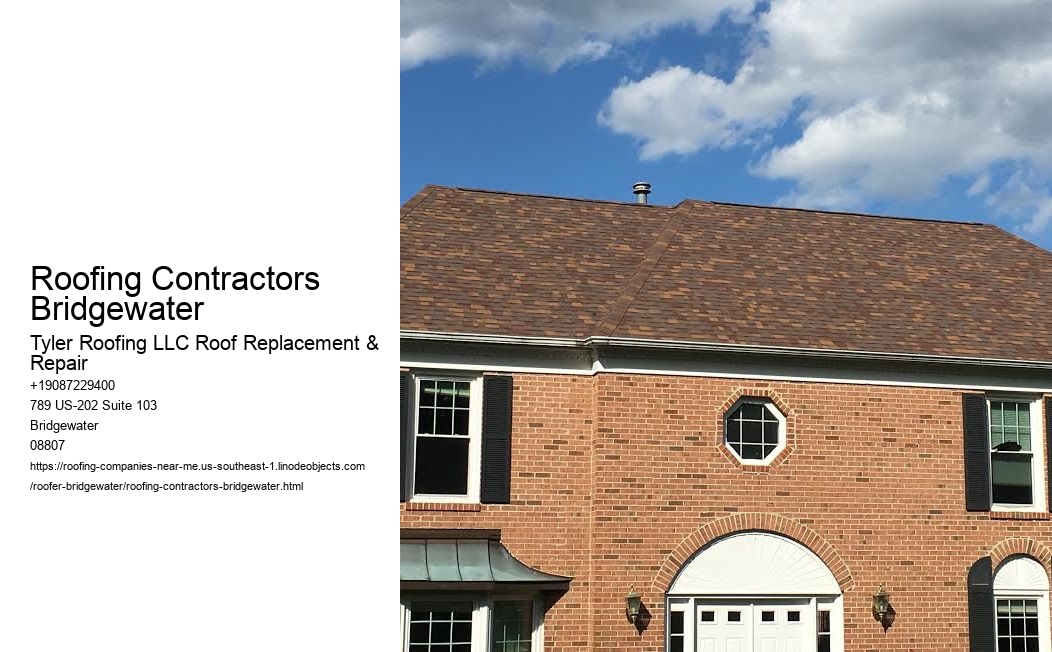Services Offered by Bridgewater Roofing Contractors
Bridgewater roofing contractors provide a full spectrum of services designed to keep homes and businesses dry, efficient, and attractive through every season. It starts with thorough roof inspections-whether you're dealing with an active leak, preparing to sell, or simply staying ahead of wear and tear. Reputable teams use a mix of hands-on evaluation and modern tools to assess shingles or membranes, flashing, valleys, skylights, and ventilation, then explain what they found in plain language with photos and clear recommendations.
Repairs are a daily staple. Contractors trace leaks to their source, replace missing or damaged shingles, reseal flashing around chimneys and vents, fix ridge caps, and address storm damage from wind or hail. When urgent problems arise, many offer emergency tarping and rapid response to prevent further interior damage. If a roof is at the end of its life, they handle complete replacements, guiding customers through material options like architectural asphalt shingles, standing seam metal, cedar, slate-look composites, or tile. A proper replacement includes upgraded underlayments, ice and water barriers where needed, balanced ventilation, and careful attention to drip edges and flashing so the system works as a whole.
Commercial and flat roofing services are just as comprehensive. Contractors install and maintain EPDM, TPO, PVC, and modified bitumen systems, design proper drainage, manage penetrations, and apply reflective coatings that extend life and improve energy performance. Preventative maintenance programs help avoid costly surprises, with scheduled checkups, debris removal, sealant touch-ups, and small fixes before they become big repairs.
Support services round out the offering. Crews repair fascia and soffits, replace or clean gutters and downspouts, install gutter guards, and add features like skylights, sun tunnels, and ridge vents. They also address attic insulation and air sealing to reduce ice dams and improve comfort. For storm losses, contractors can document damage, meet with adjusters, and help navigate insurance claims.
Homeowners and property managers can expect a straightforward process: a consultation and written estimate, scheduling that respects weather and occupancy, jobsite protection and safety, diligent cleanup, and a final walkthrough. Many Bridgewater roofers offer manufacturer-backed warranties, financing options, and solutions with an eye toward sustainability-cool roof materials, recycled-content products, and solar-ready designs.

In short, the services offered by Bridgewater roofing contractors cover everything from routine maintenance to complex installations, combining craftsmanship with local know-how to protect your property and enhance curb appeal for years to come.
How to Vet Licensing, Insurance, and Local Permits
Hiring a roofer is one of those decisions where paperwork matters as much as shingles. If you're considering roofing contractors in Bridgewater, take a few minutes to vet their licensing, insurance, and permitting practices before you sign anything. It protects your home, your wallet, and your peace of mind.
High quality low stress and no empty wallets.
Start with licensing. Ask for the contractor's legal business name and license or registration number. Cross-check it on your state's licensing or consumer affairs portal to confirm the license is active, properly classified for roofing work, and free of serious disciplinary actions. Make sure the name on the license matches the name on the proposal and any online listings. If they use a DBA, verify the connection to the licensed entity. Reputable contractors are used to this and will provide the details without hesitation.
Insurance is next. Request a certificate of insurance sent directly from the contractor's insurance agent, not just a PDF forwarded by the contractor. You're looking for two core coverages: general liability and workers' compensation. General liability helps protect you if there's damage to your property during the job; workers' comp protects you if a worker gets injured on your site. Confirm policy effective dates, that roofing operations are covered, and that coverage limits are appropriate for a roofing project.
Roofing Experts Bridgewater NJ
- We love shingles almost as much as homeowners love dry ceilings.
- We make roofing simple friendly and affordable.
- We swap shingles faster than you change streaming services. Roof Replacement Bridgewater .

Local permits are nonnegotiable for most roof replacements. Call or check the website of the Bridgewater building department to confirm whether a permit is required, what inspections occur, and who is responsible for pulling it. The contractor should obtain the permit under their name, schedule inspections, and provide you copies of the permit and final approval. Be wary if they suggest skipping permits to “save time” or ask you to pull the permit for them; that can shift liability to you and jeopardize resale or insurance claims. Also check whether your HOA requires prior approval and whether a dumpster or street occupancy permit is needed.
Lock the paperwork into your contract. It should list the contractor's license number, insurance details, who pulls and pays for permits, full scope of work, materials, ventilation upgrades if any, debris removal, start/finish dates, payment schedule tied to milestones, and warranty terms. Ask for lien waivers from the contractor, subs, and major suppliers as you make payments, so you're not exposed to surprise claims after the job is done.
Red flags include mismatched company names across documents, expired licenses, vague insurance proofs, requests for large cash deposits, and reluctance to discuss permits. For added assurance, check references, manufacturer certifications, and complaint histories through consumer protection sites.
A few careful checks up front in Bridgewater can spare you costly headaches later-and ensure your new roof is both well built and fully compliant.

Cost Estimates, Financing Options, and Warranty Coverage
When you're comparing roofing contractors in Bridgewater, the smartest way to protect your home and your wallet is to look closely at three things: cost estimates, financing options, and warranty coverage. A solid contractor will be transparent on all three, and that clarity is usually a better predictor of a successful project than the lowest price.
Start with the estimate. Ask for a written, line-by-line scope that spells out materials by brand and type, the underlayment and flashing to be used, ventilation upgrades, and whether the job is a full tear-off or an overlay. It should include labor, disposal and dumpster fees, permit costs, and a clear allowance for replacing damaged decking if it's discovered mid-project. Timelines, site protection measures, and proof of licensing and insurance belong in there too. If the price seems unusually low, look for what's missing: ice-and-water shield, drip edge, chimney flashing, or proper ventilation are common corners that get cut. Don't be shy about asking for photos of existing conditions and a final inspection checklist.
Financing can make a big job manageable. Many Bridgewater contractors offer in-house financing through lending partners with promotional 0% periods or fixed-rate plans. Compare those with a home equity line of credit, a loan from your local credit union, or a personal loan. Focus on the total cost of credit, not just the monthly payment, and watch for deferred-interest terms that balloon if the promo window closes. If storm damage is involved, talk to your insurer first; a reputable roofer can document the damage and meet your adjuster, but should never offer to cover your deductible.
Warranties are your long-term safety net. There are two kinds: manufacturer warranties on materials and the contractor's workmanship warranty. Manufacturer coverage can range from basic limited warranties to enhanced “system” warranties if a certified installer uses matched components. Workmanship coverage commonly spans 5 to 15 years; confirm what's covered, what voids it, and whether it's transferable to a new owner. Get warranty registration in writing and know who to call if an issue arises.
A few red flags: vague scopes, pressure to sign today, large deposits, and no local references. The right Bridgewater contractor will deliver a clear estimate, fair financing choices, and warranties you can actually rely on.
Seasonal Maintenance Tips and Emergency Storm Repairs
Bridgewater's weather puts a roof through a full workout every year, so a simple seasonal routine and a plan for emergencies can add years to your roof's life and prevent costly surprises.
In spring, start with a careful look after freeze-thaw cycles and nor'easter winds. From the ground, scan for missing or lifted shingles, bent flashing, and granule buildup at downspouts. Clear gutters and downspouts so spring rain doesn't back up under the shingles. Peek in the attic on a sunny day for pinholes of light, damp insulation, or musty smells that hint at slow leaks. If you noticed ice dams over the winter, ask a local roofer to evaluate ventilation and insulation to reduce heat loss at the eaves.
Summer sun can dry and crack sealants and curl aging shingles. Trim back branches that rub the roof and invite pests. Check rubber pipe boots and caulking around skylights and vents.
Roofing Experts Bridgewater NJ
- Flat Roofing Contractors Bridgewater NJ
- Five stars because we dont stop until your roof shines.
- Old world charm with modern repair magic.
Fall is prep time for winter. Clean gutters again after leaf drop and consider gutter guards if trees are close. Have a pro inspect flashing at chimneys and valleys, since these are common leak points once snow sits on the roof. Adding or upgrading an ice and water shield along eaves and valleys is smart if your roof is nearing replacement. Make sure insulation is even and baffles keep soffit vents clear.
In winter, safety comes first. If heavy snow piles up, use a roof rake from the ground to lighten eaves and reduce ice dams. Avoid climbing on icy surfaces or chipping at ice, which can damage shingles. Persistent icicles or interior stains mean it's time to call a roofer.
When storms hit, act fast but stay safe. After high wind, hail, or a fallen limb, look for interior signs first: water stains on ceilings, drips around light fixtures, or a musty attic. Photograph damage for insurance. If water is entering, a professional emergency tarp can prevent further harm until permanent repairs are made. Signs of wind damage include creased or missing shingles and loose ridge caps; hail often leaves dents in metal and piles of granules in gutters. If a tree penetrates the roof, avoid the area, shut off electricity if wiring is affected, and contact emergency services along with a roofing contractor.
A reputable Bridgewater roofing contractor can provide seasonal inspections, document condition for your records, and deliver 24/7 storm response with temporary dry-in and code-compliant repairs. Keeping up with maintenance, choosing quality materials, and partnering with a local pro turns unpredictable weather into manageable upkeep.
